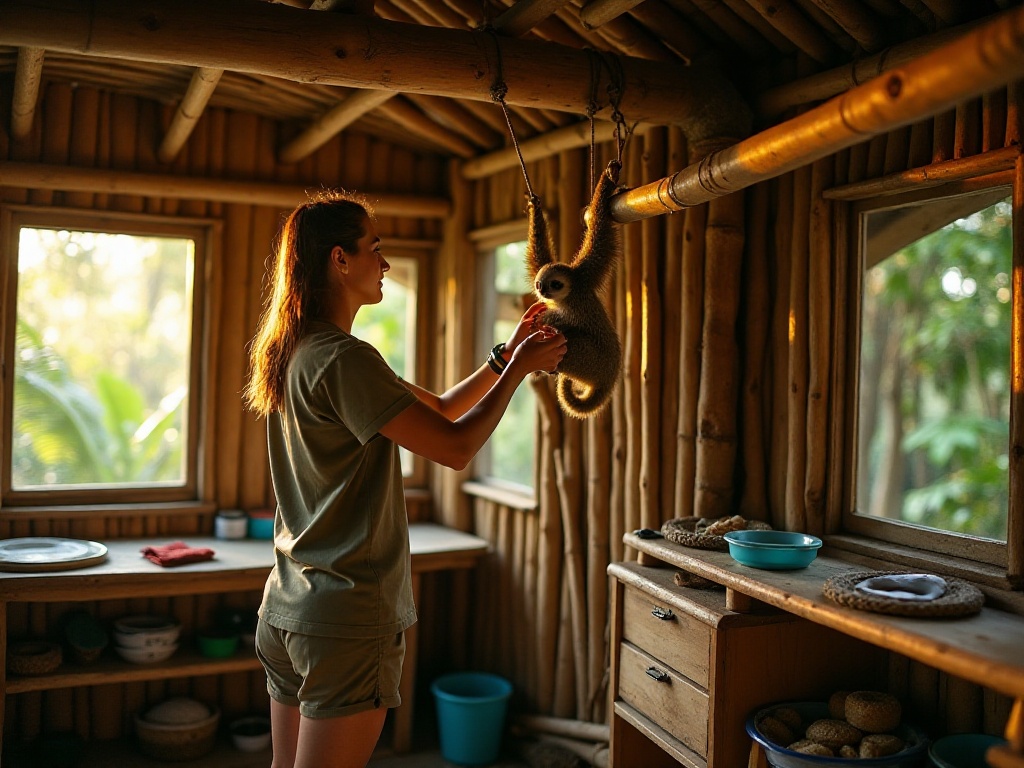One afternoon in early 2024, I was sitting idly in my graduate dorm. Having just finished my last course, I watched my classmates busily searching for jobs and planning their futures, while I felt like a lost lamb, unsure which direction to take.
That day, as I was scrolling through social media as usual, a volunteer recruitment post for an African wildlife conservation project suddenly caught my attention. My heart skipped a beat at that moment. In the photo, a group of young people were treating an injured zebra, their faces radiating focus and joy. I couldn't help but click into the details page, becoming more and more intrigued.
Wasn't this exactly what I had been looking for? A chance to experience a unique journey while doing something meaningful. At that moment, I felt like I was standing at a crossroads in life, and this opportunity seemed like a guiding light showing me the way forward.
I remember lying awake that night, my mind filled with images of the African savanna: vast plains where herds of wildebeest migrated, tall giraffes leisurely nibbling on acacia leaves, and lion families lazily resting on rocks in the sunset. The next morning, I filled out the application form without hesitation.
"Are you crazy? Volunteering in Africa?" This was my parents' first reaction when I told them about my decision. Honestly, I understood their concerns. But after detailed explanation and communication, they finally agreed and even started helping me collect various necessary documents.
The next two months, my life was completely occupied with preparation work. Every day was spent running between hospitals, handling paperwork, and preparing materials, keeping me constantly busy. Looking back now, this preparation period was like a spiritual journey.
I spent an entire week selecting the right program. I ultimately chose Projects Abroad, not just because of its reputation. After thoroughly searching through various reviews online, I found that this organization particularly emphasizes volunteer safety. They have dedicated local staff who follow up on volunteers' work and living situations throughout their stay. Moreover, their programs are professionally structured, not just packaged tourism projects.
The visa application was like a prolonged battle. I remember carrying a thick stack of documents to the embassy, waiting for half a day just to be seen. The staff carefully checked every document, making my heart race. Fortunately, it was approved in the end.
Getting vaccinations was particularly grueling. I remember the day I got the yellow fever vaccine, my fever reached 39 degrees Celsius, and I lay in bed like a limp fish. But thinking about the upcoming African journey made it all worthwhile.
In the last month before departure, I specifically signed up for personal training at the gym. After all, working in a wildlife reserve requires good physical condition. Every day after class, I would immerse myself in the gym, preparing for the upcoming challenges.
Purchasing equipment was also a headache. Sun protective clothing, hiking boots, first aid kit, mosquito repellent... The items on the list kept growing, and my suitcase quickly ran out of space. Finally, I had to buy a larger backpack, which made my wallet even thinner.
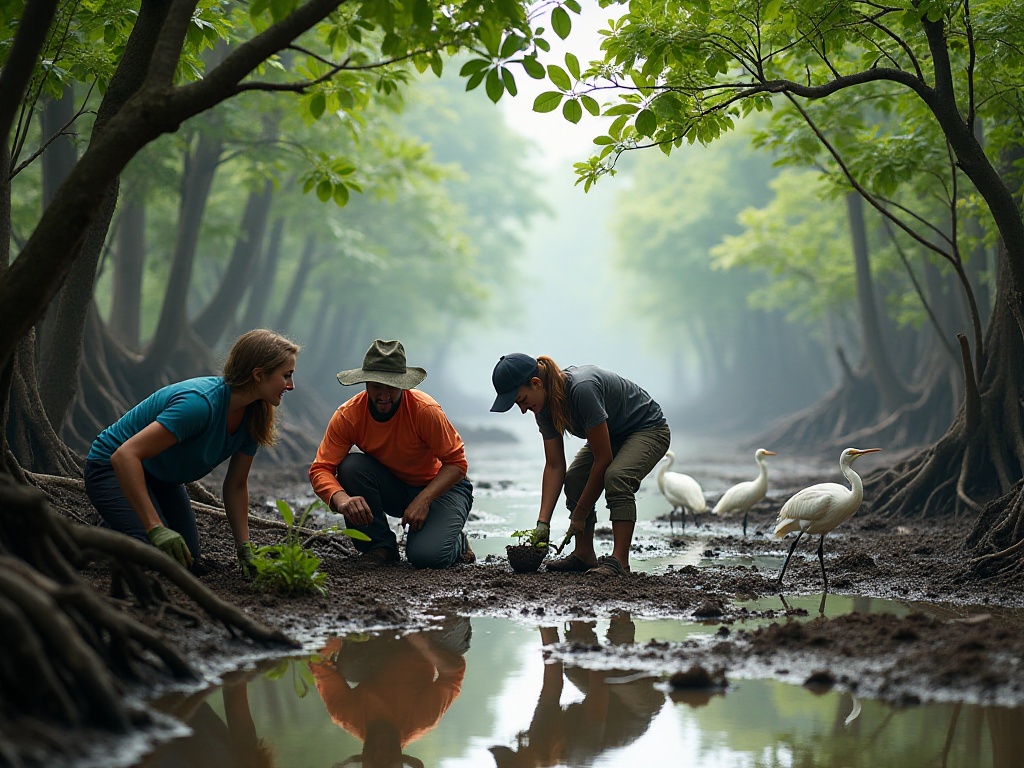
Finally, after a 14-hour flight, I set foot on Tanzanian soil. The wave of heat that hit me as I walked out of the airport felt like a punch to the face. Local staff picked me up in an off-road vehicle, and the bumpy ride made me question my life choices.
The first night, lying on the simple bed, listening to the chorus of insects and occasional animal calls outside the window, I suddenly realized: I had really made it to Africa.
Living conditions were indeed harsher than imagined. The room had no air conditioning, just an old fan that creaked noisily. Water often cut out during showers, and sometimes the electricity would go out in the middle of the night. But gradually, these all became part of life.
Every morning at 5 AM, the alarm would ring punctually. We had to start work before the sun fully rose, as this was the best time to observe animals. Put on protective gear, don a hat, pack equipment, and depart precisely at 6 AM.
I remember one time we found a young lion with an injured leg. The veterinarian needed to administer anesthesia for treatment, and my task was to assist in documenting the entire process. My heart was pounding like a drum at the time, and even though the lion was sedated, my palms were still sweating from nervousness. But watching it recover after treatment, that sense of achievement was indescribable.
Our daily work was actually quite mundane. We had to regularly check animals' activity ranges, record their behavioral patterns, collect fecal samples for analysis, and track changes in various animal populations. Sometimes we had to repair fences damaged by elephants and clean up garbage from water sources.
The most memorable experience was night patrol. We would drive across the pitch-black savanna, using infrared equipment to observe nocturnal animals. It was an especially magical experience, like being in another world. I'll never forget the first time I saw a leopard hunting at night, its elegant yet lethal silhouette both frightening and mesmerizing.
Outside of work, we would eat and chat with local staff. They taught me Swahili and shared local traditions and customs. Gradually, I was no longer an outsider but a member of this big family.
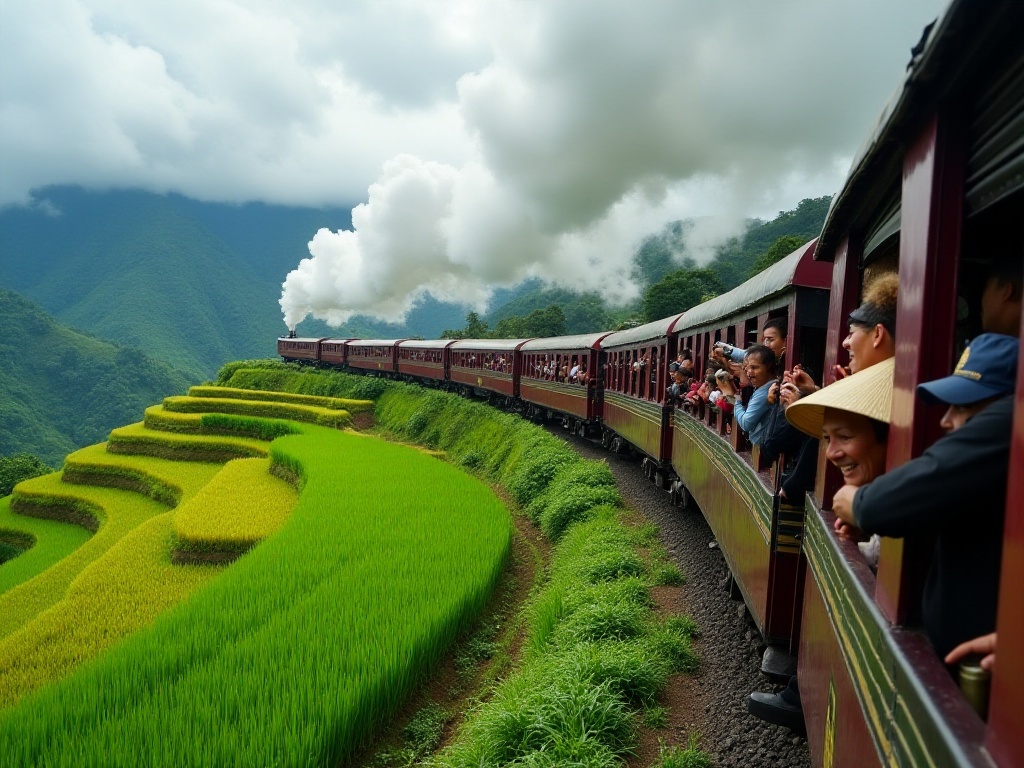
The three-month experience brought me gains far beyond expectations. Before, I always thought travel was just about "checking in" at a place, taking some nice photos for social media, and considering the mission accomplished. But now I understand that real travel should be a deep cultural exchange and journey of self-growth.
Here, I met many interesting souls. Like our guide John, a native Maasai. Although he hadn't received higher education, his understanding of the savanna ecosystem was astounding. He told me that elephant families all have their own fixed migration routes, often passed down through generations. And elephants have excellent memory, able to remember paths they traveled many years ago.
Then there was my roommate Sarah from Australia. She was a veterinary student who specifically took time off to intern here. We often stayed up late talking, sharing our life experiences and dreams. Through her, I learned a lot about animal medicine.
The most touching were the local children. Despite harsh material conditions, they were always full of curiosity and energy. Every time we patrolled past villages, they would run out to greet us. Sometimes I would teach them simple Chinese, and they would teach us traditional local games. This kind of pure joy is hard to experience in the city.
Every day at work was full of new discoveries. I learned to identify different animal tracks, distinguish various bird calls, and determine animals' health conditions. This knowledge wasn't learned from books but accumulated bit by bit through practice.
Perhaps the most unexpected gain was how my self-perception changed. Before, I always thought I wasn't brave enough, hesitating about everything. But here, I had to learn to face various challenges independently. Gradually, I found myself becoming stronger and more confident.
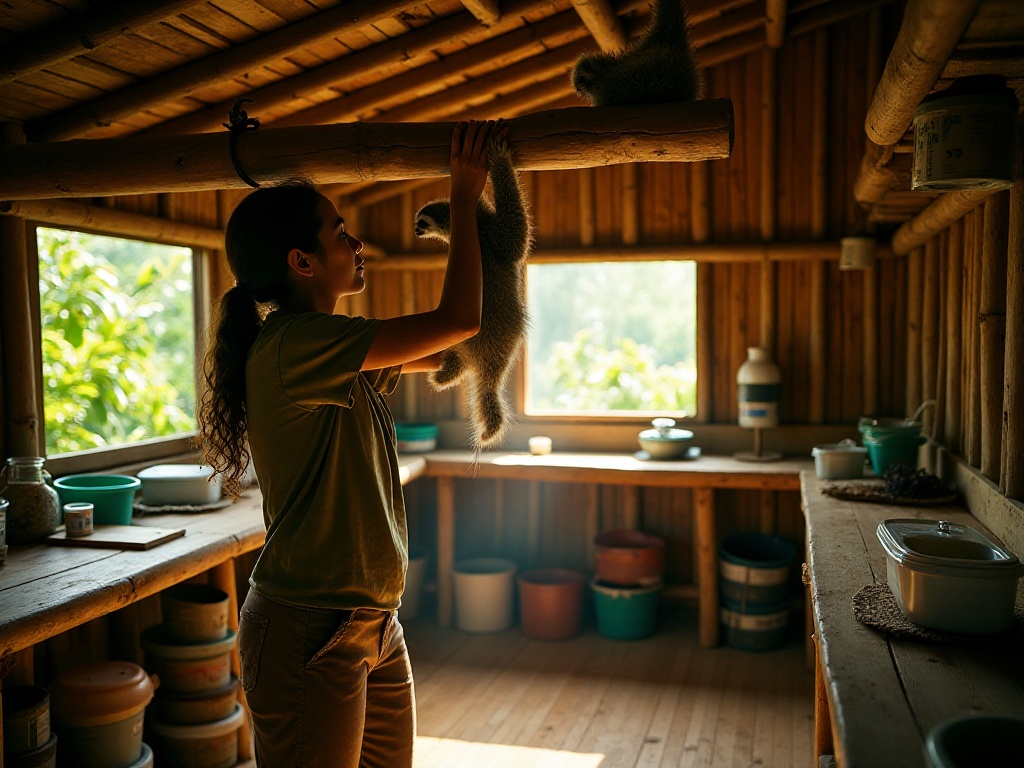
After returning home, I often think about the bits and pieces of my time in Africa. This experience gave me a completely new understanding of the concept of "travel."
Modern society's way of traveling is often too commercialized and superficial. Many people visit a place just to briefly see the sights, buy souvenirs, and post on social media. While this kind of travel can bring momentary pleasure, it rarely leaves a deep impression on the heart.
In comparison, volunteer travel offers a more profound choice. Through actual participation in local work and life, we can truly understand a place's culture and social conditions. This isn't just a trip, but a journey of spiritual growth.
From a data perspective, this type of travel is attracting more and more young people. The global volunteer travel market reached $4.3 billion in 2023 and is expected to grow to $6.5 billion by 2028. This growth trend reflects that modern young people's travel needs have shifted from simple sightseeing to more meaningful experiences.
More importantly, volunteer travel can bring significant personal growth. According to Projects Abroad statistics, 78% of participants say the experience changed their life outlook, and 85% believe it improved their cross-cultural communication skills. Behind these numbers are countless stories of young people like me achieving personal breakthroughs through volunteer service.
The experience in Africa also made me deeply understand the importance of sustainable tourism. Traditional tourism sometimes negatively impacts local environments and cultures, while volunteer travel can bring actual help to local communities while protecting the natural environment.
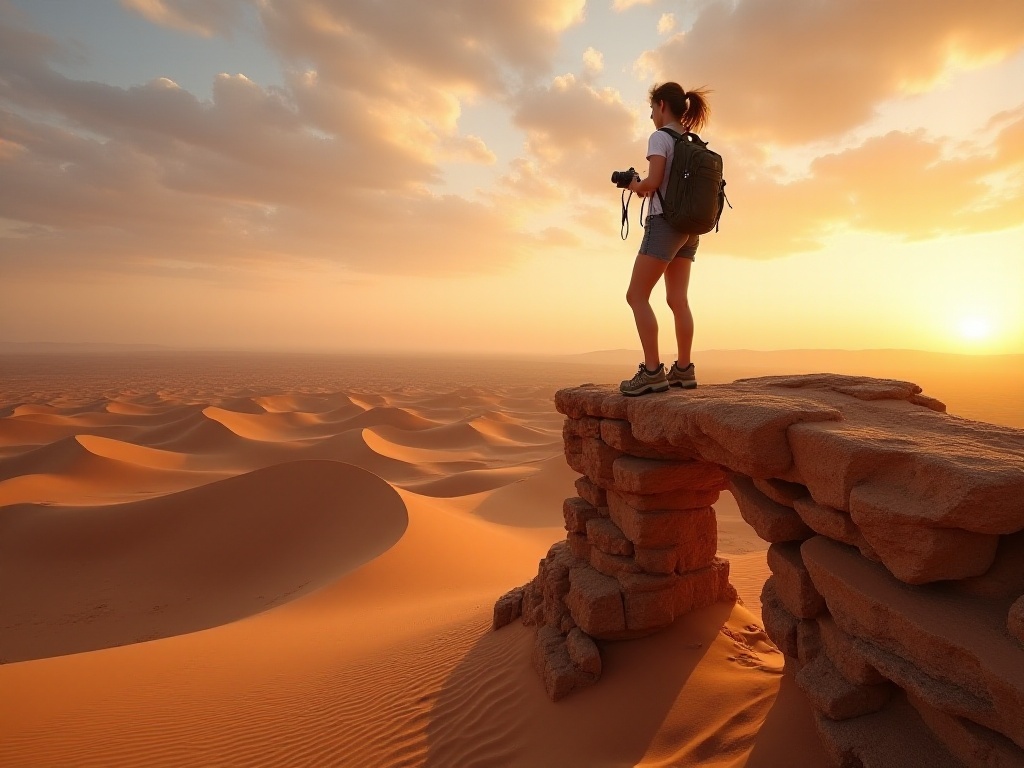
If you want to try volunteer travel, I suggest making thorough preparations. This isn't just an ordinary trip, but a long-term project requiring investment of time, energy, and sense of responsibility.
When choosing a program, first consider the organization's reliability. It's recommended to choose large organizations with good reputations and long-term operating experience. You can check the organization's registration information and read previous volunteers' reviews to understand the situation. Also, carefully read program descriptions to ensure the content matches your interests and abilities.
Program duration choice is also important. I recommend choosing programs lasting at least one month, as only then can you truly integrate into local life and establish effective working relationships. Short-term programs might feel superficial, making it difficult to gain deep experiences.
Cost budgeting needs careful planning. Besides basic program fees, consider these expenses: - Round-trip airfare and local transportation costs - Vaccination fees (multiple vaccines may be needed) - Travel insurance (must purchase insurance including medical evacuation) - Living supplies and equipment costs - Emergency funds
Before departure, make thorough physical and mental preparations. This includes: - Exercise in advance to build stamina - Learn some basic local language - Understand local cultural customs and taboos - Prepare necessary medical supplies - Prepare mentally for potential culture shock
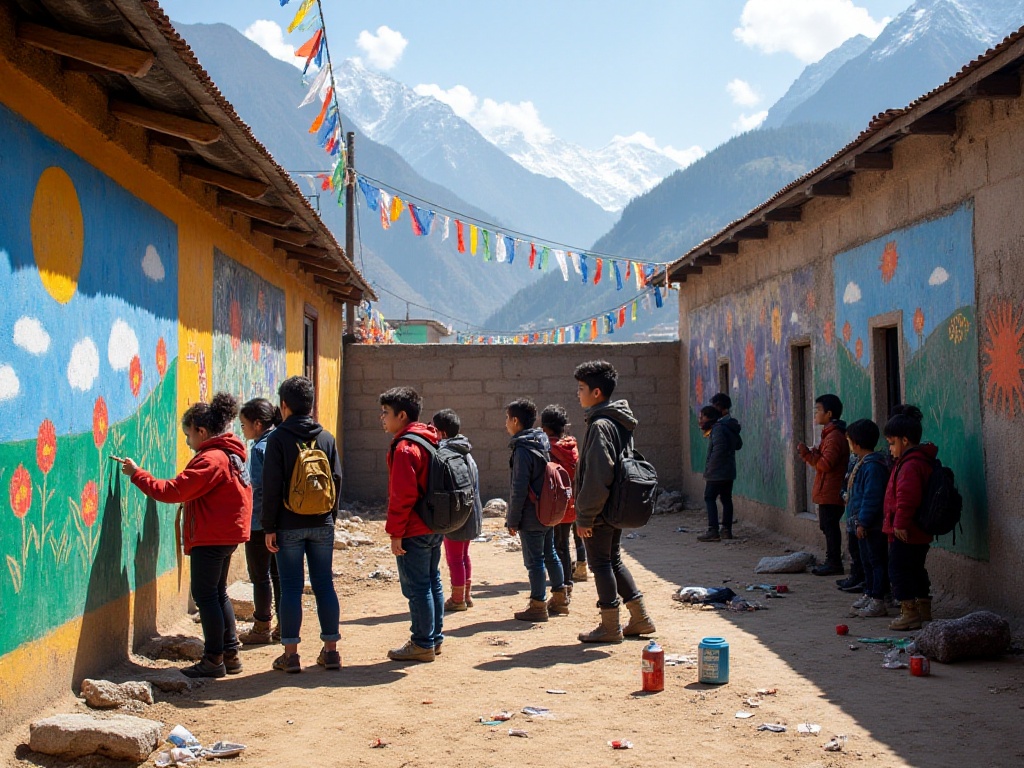
Now thinking back to that time in Africa, it feels like yesterday. Every blade of grass and tree, every scene and object, is deeply imprinted in my mind. In the quiet of night, I still think of the savanna starry sky, the lion's roar, those lovely animals, and warm smiles.
This experience wasn't just a journey, but more like a process of rediscovering the world and myself. It made me understand that life shouldn't be confined by fixed frameworks; there's always another possibility waiting to be discovered.
Now I'm preparing for my next volunteer trip, targeting the Amazon rainforest in South America. That area also faces environmental protection challenges needing more attention and participation. I believe this will be another exciting life journey.
This world is vast, and our lives are short. Rather than rushing through superficially, it's better to pause and truly feel each place's unique charm. Volunteer travel gives us such an opportunity to explore this world in a more meaningful way while also exploring our inner selves.
The meaning of travel isn't just about seeing different scenery, but about becoming better people. Through volunteer travel, we can break through our comfort zones and build deeper connections with this world - perhaps this is travel's most precious meaning.
 Previous
Previous



